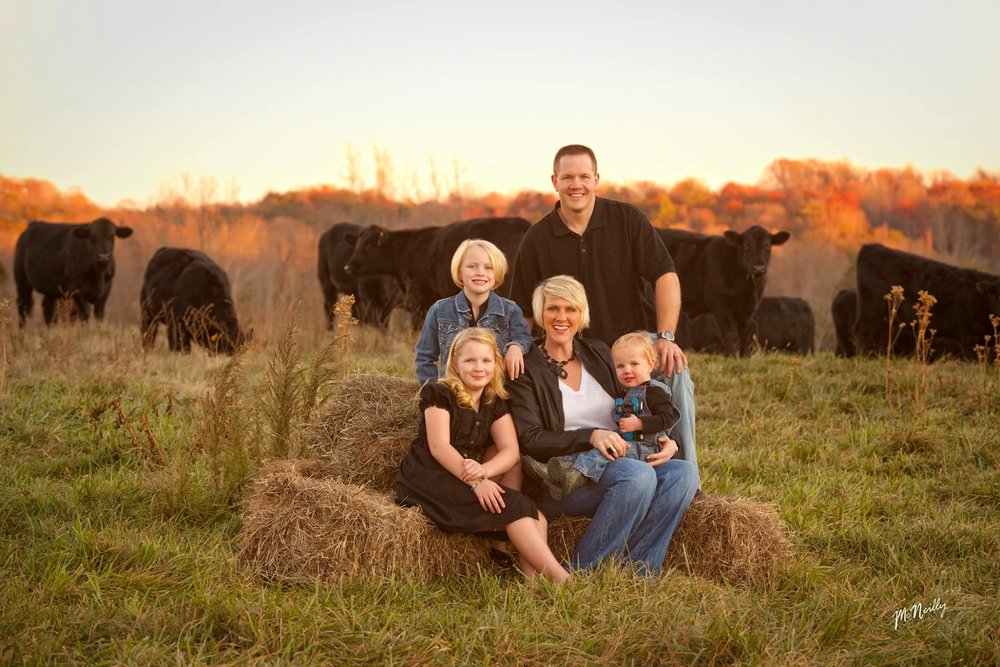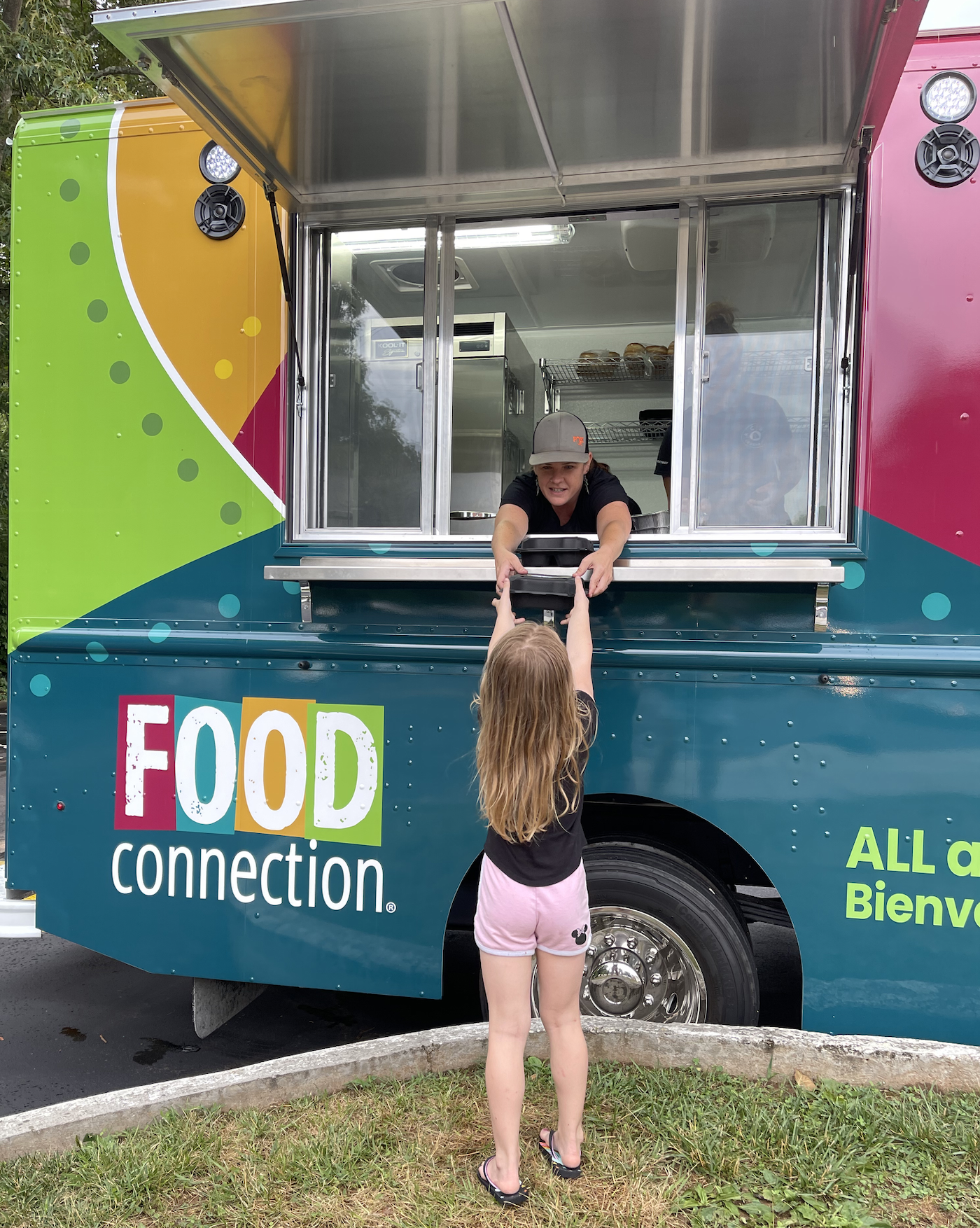Tucked within the picturesque foothills of Delight, a rural area north of Shelby, lies Beam Family Farm, a farm 150 years in the making.
Owner Luke Beam, a seventh-generation cattle farmer, and his wife, Kathy, once lived in the same house that Beam’s great-great-grandfather built in 1870.
“My parents were full time on the farm, my mom looking after the baby calves and being in charge of the books and my dad taking care of most everything else. I grew up by getting up early and feeding calves and milking cows. That was just our life,” remembers Beam. “When I went to college, I came home every weekend just because I loved being on the farm.”
Today, Beam lives with his wife on that same property where the couple raised their three children, now in their teens and early 20s, and sells pasture-raised beef directly to consumers.
Beam’s story is not unique. Across North Carolina, hundreds of farms have been passed down through generations. But without careful planning, many farmers risk having to sell the farm to cover rising taxes, health care or estate issues.
That’s where Stephen Bishop steps in. He is the western director of NC FarmLink, a program of N.C. State Extension that helps farmers navigate the complex process of farm transition, ensuring that farmland remains in the same families for years to come. NC FarmLink held its first workshop in Western North Carolina last month as part of a pilot program aimed at educating farmers on how to keep their farms in the family.
Bishop notes that more than half of North Carolina’s farmers are over the age of 65, and the vast majority of farms throughout the state are family-owned. The U.S. Department of Agriculture projects that nearly 70% of farmland will change ownership within the next 20 years. Yet, nearly 60% of farmers lack even a basic will.
“What we’ve learned is that these transition issues are generally pretty complex, and there’s a lot of different variables that go into them. It can be overwhelming for farmers to try to work through them,” says Bishop. “Part of our role is educating folks on transition issues and trying to connect them to resources.”
More than a business
Farming is full of risk, which can make planning difficult. Weather, yields, government policies, global markets and other factors all impact what a farmer can earn year to year. But having a plan in place is the first step in mitigating future stress.
“Research shows that if your parents had an estate plan, you were more likely to have an estate plan because you saw your parents do it,” says Bishop. “But for most folks, it’s very common to hear ‘My parents didn’t have a will, and everything worked out fine.’ Eventually, there’s going to be a weak link in there if we keep letting that continue.”
Additionally, family farms are often more complex than other types of family-owned businesses because they include sentimental and historical value, adds Bishop.
“A lot of times your home is where your children grew up. You’ve got a lot of memories there. So there are human emotions wrapped into it,” he explains. “It’s not as clean-cut as a lot of other family businesses because it’s a bigger knot to untangle.”
Beam says that he and his siblings have plans in place to share the farmland after it passes on from their mother but adds that talk about farm succession is difficult for family members. “I think for most people, the biggest hurdle is having that conversation — because no one wants to come to grips that they’re going to die, right?” says Beam.
Unprotected assets
As farmers age, they experience many of the same issues as other aging seniors — long-term medical care needs, probate, complex family dynamics — all of which expose farmers and their families to losing their farmlands and businesses.
According to AARP, about half of seniors will require long-term care, with one in seven (14%) incurring out-of-pocket costs of more than $100,000. Medicaid, a low-income health program, covers the cost of some long-term care, but eligibility is determined by available income and assets — like a farm.
If an owner dies unexpectedly, probate, a court-supervised process of managing a deceased person’s assets, could force the sale of property to cover estate taxes, even if the surviving family members wish to maintain the farm and the business.
Disputes among family members, including divorce or other domestic matters, could also lead to unintentional losses through forced sales. Siblings who inherit farmland are co-owners of the property, Bishop explains, and it takes just one sibling to force a sale even if others want to keep the property.
“That’s perfectly legal here in North Carolina,” says Bishop. “If you don’t have a plan, it’s really easy for your family just to start bickering and fussing and fighting, and the easiest thing at that point is to just sell the property,” Bishop says. “And so that’s what we’re trying to warn folks of.”
Weighing the options
In 1987, Tom and Karen Elmore put down roots in Leicester and started Thatchmore Farm, a 10-acre certified organic farm that grows Christmas trees and other ornamentals as well as mushrooms and fruit.
The Elmores never put pressure on their daughter, Liz, to take over the farm and began to consider their options. One of the goals of NC FarmLink is to educate farmers on options outside of family members. Farmers can choose to lease their land and equipment to another farmer or create a revocable trust that helps manage the farm in case of incapacity.
Conservation easements also offer options for farmers who wish to maintain their agricultural lands in perpetuity. Forever Farms, a program of the N.C. Department of Agriculture & Consumer Services, pays farmers to waive development rights in the form of conservation easements.
“The farmer still gets to pass it down to his children, but they can’t develop it either. So it will stay a farm for perpetuity,” says Bishop. “So not only is it protecting the farm, but it’s also providing the farmers with a lump sum of money that can be used to pad their retirement savings or maybe to pay for a long-term care policy.”
But much to her parents’ delight, Liz Elmore began working full time at the farm in 2018 after she graduated from college.
“We were very pleased,” recalls Tom. “We never required Liz to work on the farm growing up. We weren’t expecting her to come back to run the farm, but she chose to. I think a lot of times decisions stick a little better when they’re made from free choice as opposed to being pressured.”
Liz says she doesn’t yet know whether she’ll continue farming long term, but she and her parents are exploring options that would prevent the land from being developed for housing or other uses. “Western North Carolina just has a history of having to be self-sufficient for various reasons. And if we lose that, of course, it’s sad economically, but also culturally,” she explains.
Preserving farms
Farmland is slowly declining across the state, which could have significant economic and cultural impacts. The 2022 Census of Agriculture found that North Carolina experienced an almost 8% decrease in the number of farms from 2017-22, and a loss of 8.1 million acres of farmland.
“Farming is a huge economic driver for the state. It’s a $1 billion business. But, then there’s also the heritage,” Bishop says. “People like seeing rural landscapes. They like seeing hay bales out in fields and cows in the pasture. It becomes part of your heritage and upbringing, and so it means a lot to people.”
Beam says that regardless of whether his children want to farm one day, he sees the value in maintaining undeveloped land. His dream is to ensure that the property stays in agriculture in perpetuity. “I think we have a responsibility to God to care for what he’s put in our hands as stewards. It’s crucial that we maintain land to produce food, to produce fiber, to grow stuff. It’s so important that we continue to have those options in the future,” he explains.
Bishop reminds local farmers that it’s never too early — or too late — to begin planning and having conversations with family members about the future of their farmlands.
“It’s kind of like planting a tree,” adds Bishop. “The best time was 20 years ago, and the next best time is now.”






